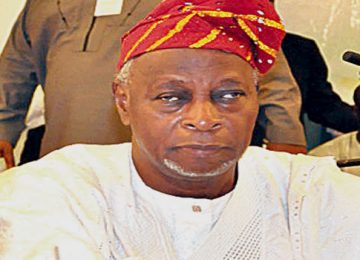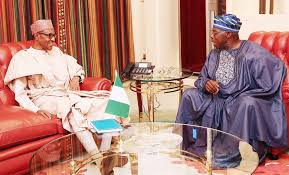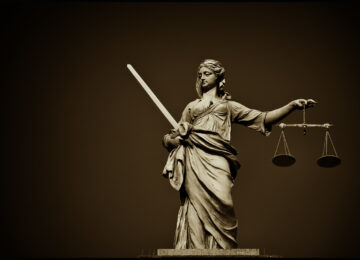Reflections Without Mirror…..Niyi Aborisade
Col. Victor Adebukunola Banjo: A Genuine Revolutionary : Part 7
*Banjo’s Trial*
Banjo was set for trial. Ojukwu chose Godwin Nzegwu to head the Special Tribunal that will conduct the trial of Col. Victor Banjo and others. Godwin Nzegwu was a lawyer from Onitsha, Anambra, he insisted on seeing the evidence and hear the defence of the accused . He resolved on giving the accused a fair hearing. He believed in the Latin Maxim ‘ Audi alteram Partem’, that is, ‘hear the other side of the story’. That is the ancient doctrine of fair hearing till date. Yoruba will say , (Agbejo enikan da ejo Agba osika ni’ ) meaning that anyone that heard only one side of a case without listening to the other side and passed judgement is a wicked man. They went further to say,’It is only a wicked person who will present a case and at the same time adjudicate on it. ( Ika ki yo ro ejo, Ika ki yo da’) and ‘it simply means ‘ you can not be a judge in your own case’ Godwin Nzegwu though an Ibo man combined these values apart from being a lawyer who was committed to upholding the rule of law
*Standard of Proof and Burden of Proof*
This was a criminal proceedings and the standard of proof is higher, unlike civil proceedings where the standard of proof is ‘ on the balance of probabilities’. In criminal matters, the standard of proof is very high – ‘ proof beyond reasonable doubts in all elements of the offence, and the burden of proof lies on the prosecution or ‘the crown’ in other countries as it were. In simple term, the prosecution had to satisfy the Tribunal beyond reasonable doubts that Banjo and 3 others were guilty of the criminal allegations of count 1 and 2 or any of the 2 charges brought against them ( Please see part 6 of this piece). Where there were little doubts, the accused should be acquited.
*Man of Integrity*
Meanwhile, Ojukwu had ordered the Tribunal in advance to condemn Banjo and others as he had already adjudged them guilty and the Tribunal should find them guilty too. Nzegwu demurred , he cannot do it, Nzegwu, an erudite lawyer was a conscientious objector , a rare gem, having listened to the defendants , and in the absence of any documentary evidence to establish the truth of facts needed to satisfy all the required legal element of the alleged crime, save hearsay evidence which can not be relied upon in a case of that magnitude. A case that involved not only the liberty of the individuals but their lives were at stake, he refused to participate in murdering innocent souls. Godwin Nzegwu of course, should know what would follow, you cannot say ‘no’ to the commander in chief and get away with it. His flagrant disobedience to the instructions of the Commander in Chief was a humilliation to Ojukwu, that may also cast him in a bad light amongst the innocent Igbo people and the world at large, he should therefore not go unpunished so as to deter others. He was arrested and detained till the end of the war. That Tribunal, of course, was dissolved and a new one had to be reconstituted. The decision of Nzegwu to refuse order/direction of Ojukwu to find Banjo and others guilty and send them for execution will stand to his credit till eternity and wherever the story of Banjo is being told anywhere in this world, his name would be remembered for good. It shows that we still have courageous people, men of integrity even in the midst of the wicked people, we can find men that will not sell their conscience, men who prefer to die for what they believed. I do not know whether he is still alive or dead but if he is alive, he deserves the highest award in Nigeria and if he was dead, he deserves the highest post- humours award.
*Godwin Nzegwu v Justice George Sodehinde Sowemimo*
In 1963 , Awolowo, Jakande , Onabanjo, Omisade, Anthony Enahoro and others were charged for treasonable felony on the ground that Awolowo and others planned to topple the federal government of Sir Abubakar Tafawa Balewa. The prosecution called 53 witnesses in all. Awolowo conducted his own trial just like Banjo did later in 1967, Awolowo denied the allegations and pleaded not guilty but the trial judge Justice George Sodehinde Sowemimo did not mince words to say before passing sentence, that the allegation had ‘political undertone and his hands were tied’. He sentenced Awolowo to 10 years (Imprisonment With Hard Labour) Treasonable Felony , contrary to section 41 (b) of the criminal code.
The meaning of ‘ my hands’ were tied’ made more sense when he was sighted in Kano 2 days after the trial.
Godwin Nzegwu was not in the league of these kind of judges whose ‘their hands’ were tied by fear, coercion, or by the allurement of money and favour other than righteousness
I say this very much about Godwin Nzegwu because if not for him, many people would have still be doubting as to whether Banjo was innocent or not, however, by the singular act of Nzegwu , ( an Ibo man) the innocence of Banjo had been proved beyond reasonable doubt. It was through his refusal to carry out injustice that we realised that Ojukwu had no evidence against Banjo and others. Whatever document Ojukwu may have cabled to the American Ambassador or the British Envoy later was a fabrication to justify his evil act and probably to avoid being tried for war crime. Any documentary evidence that was not placed before the judge on trial does not exist or should be treated as non exist because the accused were supposed to be judged by evidence presented before the judge. On that occasion, Banjo and others were tried and judged without any evidence.
Ojukwu had to find judges that would dance to his tune , someone who would not challenge his authority and just follow his instructions sheepishly and do his bidding even where there was no evidence. Judges who are ready to mortgage their conscience, who would not be scared to condemn innocent people, he needed people like Judas to do his bidding, people that their ‘hands would be tied’ and can not therefore give out justice. People that the ‘blood of Innocent’ meant nothing in their mind.
Perhaps one may ask why Ojukwu did not simply execute Banjo and others without trial under the martial laws? Ojukwu could not have done that and he could not afford to do that , he needed to show his people that he was not a dictator, He must seek to persuade the world that he was fair since the new nation must court friends from other advanced countries in the world. Moreover, Banjo was not just an ordinary officer, he was a very popular officer, he represented the progressive and the revolutionaries in the army, he was the commander of the Liberation Army of Nigeria and a well respected one for that matter, able general and not a disable one. Banjo was not at any time pretended to be a Biafran, but this was not synonymous to planning a coup. Ojukwu had been made aware of it from the outset, and he had agreed to it before the success of the Mid-West. The success of Banjo in the Mid West was the catalyst that changed the equation, and his request for a partnership made him to become the enemy of the State of Ojukwu. It prompted a letter from Ojukwu wherein conditions that did not exist before the success were given to Banjo and now became part of the ‘Order’ to clip the wings of the Yoruba Star. Ojukwu himself admitted that Banjo was a meticulous officer. In that respect, he can not just be killed like a commoner or ‘ a bloody civilian’ Ojukwu, therefore, must organise a kangaroo court and allow people to see how fair he was, albeit in a kangaroo trial where Judgment had been pre-determined by his excellency himself. To the unlearned, a trial is a trial, knowledge of what constitutes a fair trial is not a common knowledge, Ojukwu therefore hid behind the name of ‘ Special Tribunal’ Judgment’ to shed the blood of the innocents. Ojukwu was a judge in his own case.
He appointed Justice George Ekemena as the chairman of the Special Tribunal, assisted by a military officer and a civilian administrator. The message from the head of State of Biafra to the Tribunal was very clear, ‘ find them guilty and send them to the gallows.
Banjo prepared and conducted his defence as a litigant in person …………to be continued
Niyi Aborisade is a lawyer, a Human Rights Activist and a historian




